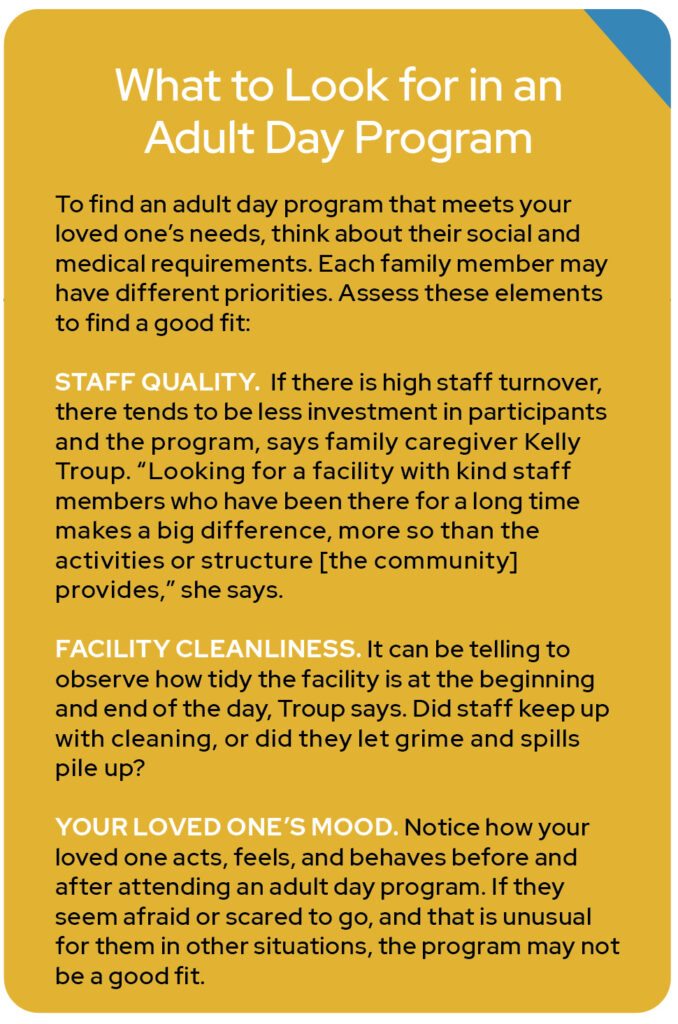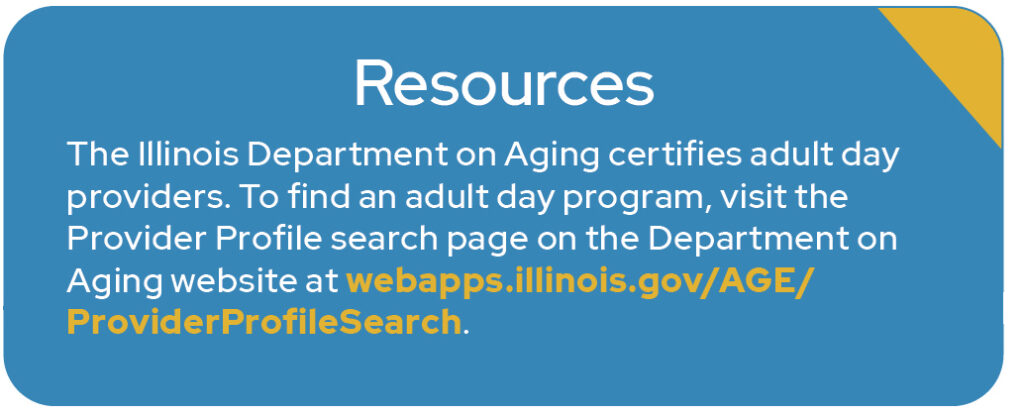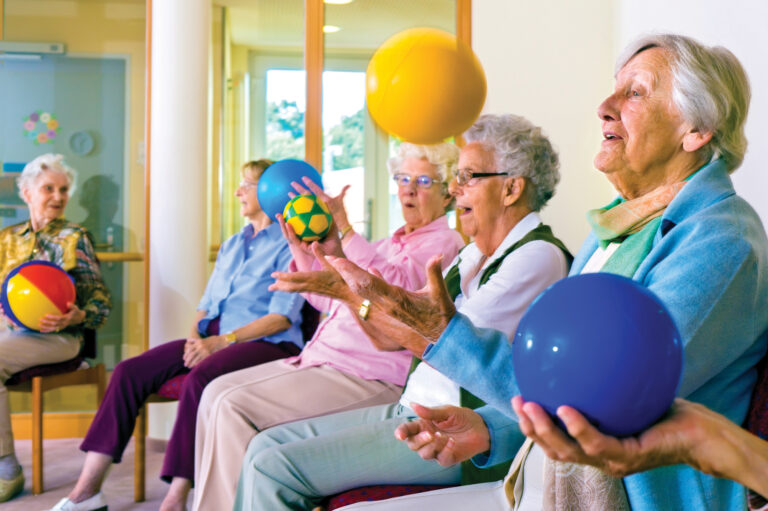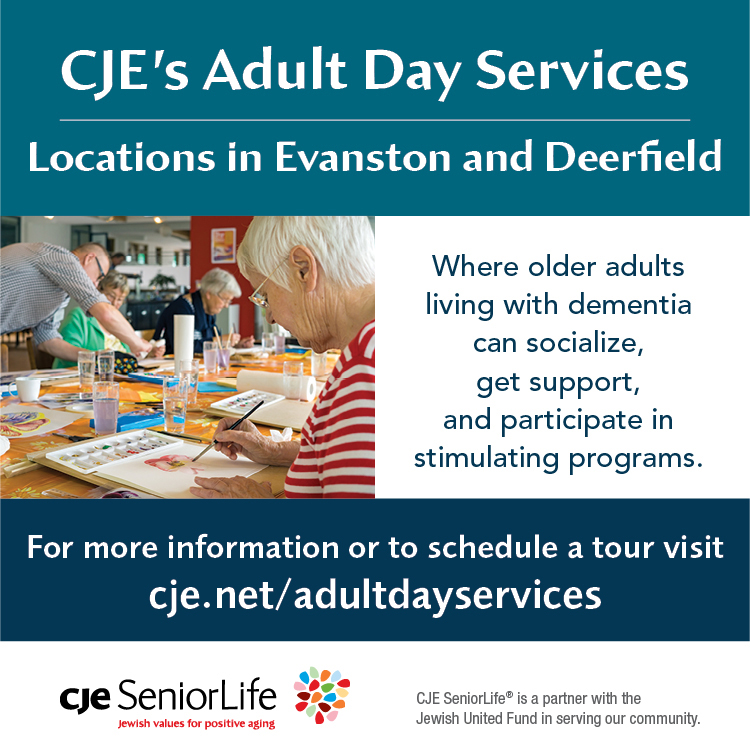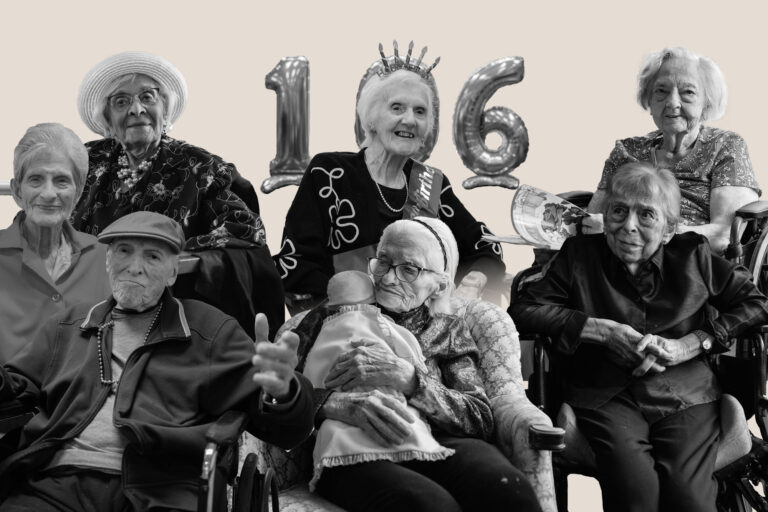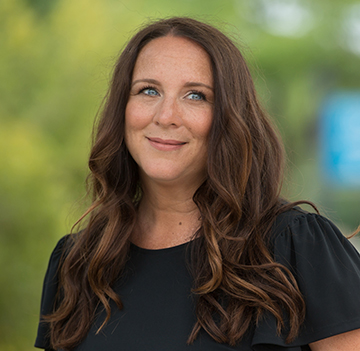
Cathy specializes in health, mental health, and human behavior. She connects with readers in an insightful and engaging way.
Services offer supervision and activities, keeping older adults engaged while aging in place
Often, after packed days and nights caring for their aging loved ones, family caregivers need a break. And older adults, including people with dementia, need breaks, too. Adult day programs fill those needs, providing supervised activities and care designed specifically for older adults aging in place at home.
Kelly Troup’s dad, Dan Murphy, was diagnosed with Alzheimer’s disease in 2014 at 70 years old. A few years into Murphy’s diagnosis, Troup, who lives in Arlington Heights, and her sister decided to find an adult day program for him. They wanted their mom to be able to take a break from caregiving.
“My dad cannot be left alone for any period of time,” Troup says. “Although my mom has caregivers in the house on occasion, [sending him to an adult day program] allows her a set time to schedule appointments, time with friends, and the freedom to plan activities. She knows he is safe and well cared for.”
Twice a week, Troup’s father goes to the Advocate Lutheran General Adult Day Center in Des Plaines, where he benefits from the regular routine and structure. “It is more affordable than a one-on-one caretaker and provides a much-needed respite for my mom’s mental health since he is so dependent on her for every need and for security,” Troup says.
The program also provides socialization. Murphy participates in group activities, such as listening to music, playing catch, watching movies, and creating art.
“The day program allows him to spend time with people who need similar supports,” Troup says. “When he is not stimulated, he tends to sleep more and be less active, or become very restless.”
Many families like Troup’s rely on adult day programs for their loved ones, and the need continues to increase. Nationwide, some 4,600 adult day programs service more than 260,000 participants and family caregivers — an increase of more than 100,000 people since 2002, according to the National Adult Day Services Association.
Programs follow either a social model or a medical model, emphasizing activities or offering health assistance along with social options.
Social models of adult day programs
Social models prioritize opportunities to socialize in group settings and engage in activities both independently and with others. The attendees are mostly in fair physical health, and the staff typically does not include medical personnel.
Some social programs focus on people with dementia, such as the House of Welcome (HOW) Day Program in Northfield, which is part of North Shore Senior Center. The program offers a morning session ($100) from 9 a.m. to 12:30 p.m. that includes lunch, an afternoon session ($100) from 1 to 5 p.m., and a full-day option ($150) from 9 a.m. to 5 p.m. that also includes lunch.
Cynthia Phon, director of HOW, says everyone who attends the program has a cognitive impairment. Each day includes structure with different small-group activities. For instance, the sessions begin with a meeting to review the day’s schedule. Then participants engage in activities targeted toward people living with dementia, including music, art, and games. “They need to feel like they can contribute and build relationships and friendships. Outside of our program, it can be hard to meet those needs, so we try to meet them,” Phon says.
Staff is trained to get all participants involved. For example, Phon says, if they are playing a word game that resembles Wheel of Fortune, they may ask those capable to choose a letter, others to pick from a deck of cards showcasing letters, or staff may ask some to choose between two cards.
While HOW is not a medical day program, a certified nursing assistant is on staff to assist with toileting, and a registered nurse dispenses medication.
Medical models of adult day programs
Advocate Lutheran General Adult Day Center offers a medical model with a social component.
The program’s registered nurse, certified nursing assistants, and nursing care techs meet participants’ medical needs, including diabetic care, wound treatment, tube feeding, medication administration, and assistance with walking and using the bathroom.
The program ($80 per day) runs from 7 a.m. to 5 p.m., with transportation for $11 each way. A variety of structured activities take place throughout the day.
Mindy D. Haglund, manager of older adult services at Advocate Lutheran General, says about 70% of the program’s participants have some form of Alzheimer’s disease. Other attendees include those who have depression, Parkinson’s disease, or who have had strokes.
Caregivers are reassured knowing their loved ones are cared for, says Jaime Albergo, the program’s information and resource coordinator. “When they are super-overwhelmed emotionally and are exhausted physically from being up all night long with their loved one, just having five to eight hours of respite really is such a significant benefit.”
With socialization and supervision, the programs provide care and companionship to older adults, as well as a needed relief for caregivers. As Troup has found, having her dad attend a program helps both him and her mom equally. And, she adds, “It gives my sister and me peace of mind.”
